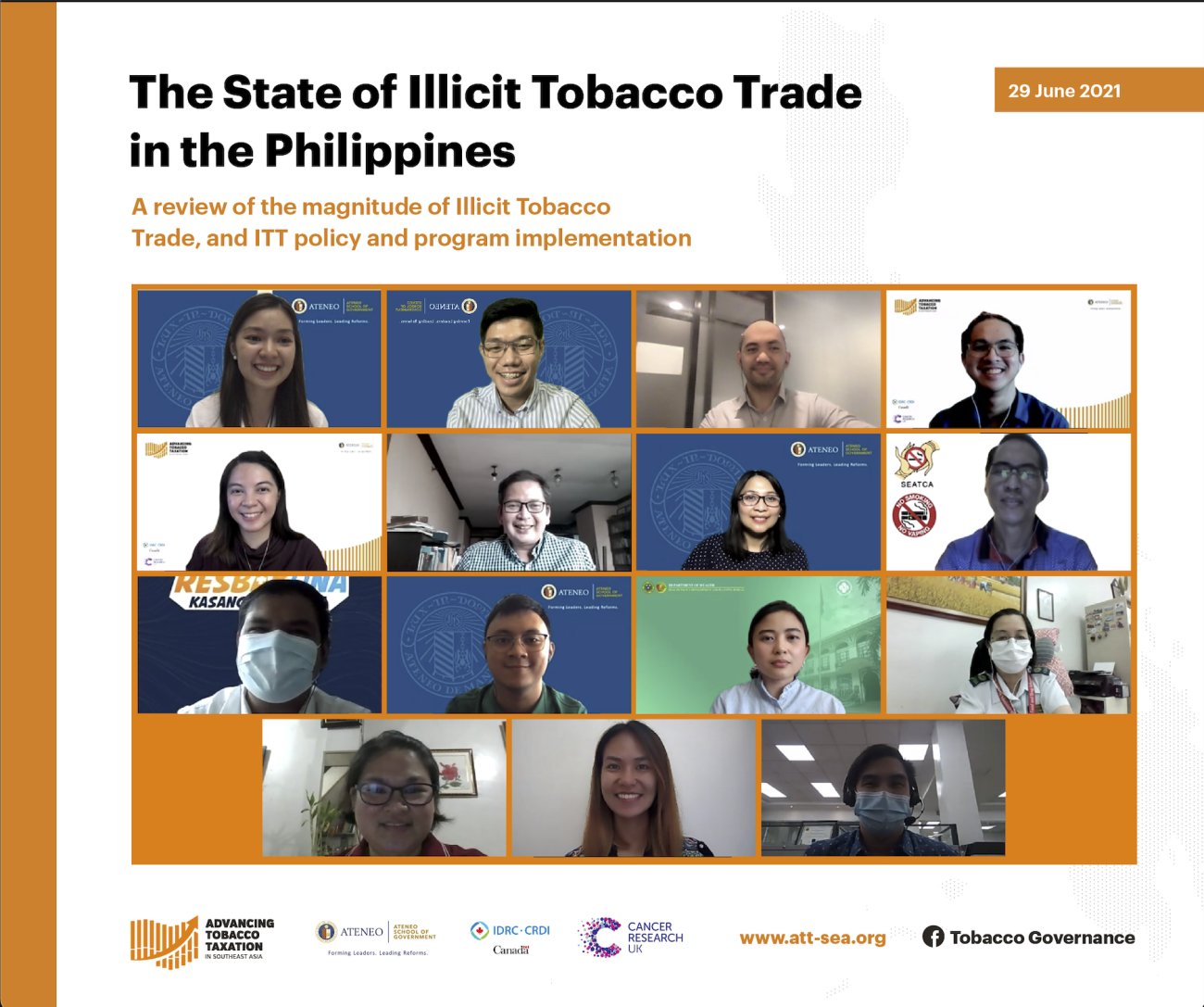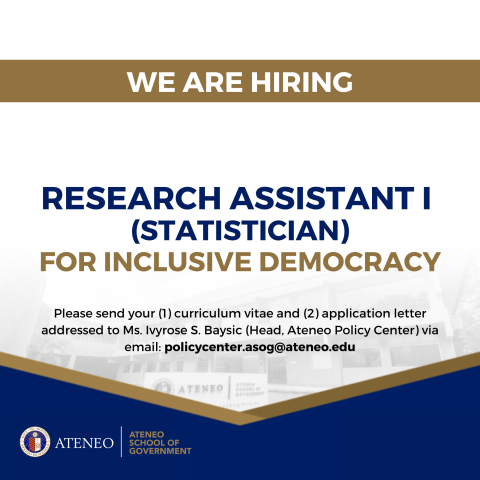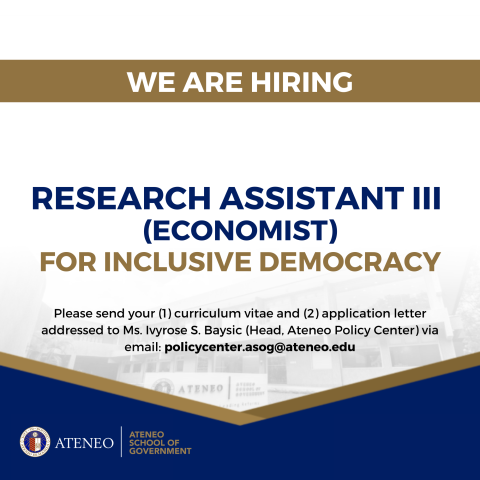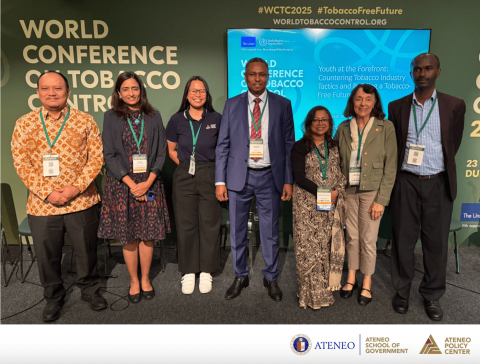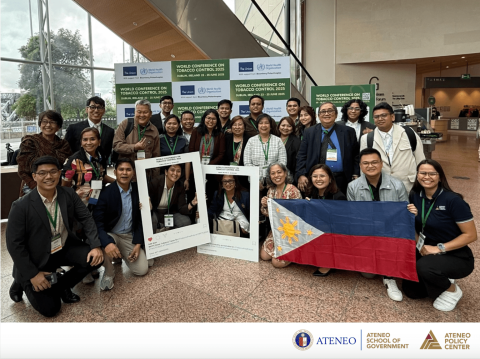Illicit Tobacco Trade in the Philippines: Trend, Policies and Program Implementation
27 Jul 2021
Manila, Philippines –The Ateneo School of Government (ASOG) last June 29, 2021 hosted a policy discussion session with stakeholders in the Department of Health, Food and Drug Authority, and the Southeast Asian Tobacco Control Alliance about the findings in studies “Analyzing the Illicit Tobacco Trade in the Philippines from 1998-2018” and “Review of Illicit Tobacco Trade Policy and Program Implementation in the Philippines” and the implications those have on current policies and strategies, as well as next steps to take in pushing forward tobacco control in light of additional data on the illicit tobacco trade in the country. The first in this series of online sessions, both studies are part of the Advancing Tobacco Taxation in Southeast Asia (ATT-SEA), a research project that aims to improve tobacco tax implementation and tobacco control interventions in the Philippines and other Southeast Asian countries by addressing the current knowledge gaps and strengthening research on tobacco tax evasion and illicit tobacco trade in the region. This project is being implemented through the financial support of Canada’s International Development Research Centre (IDRC) and Cancer Research UK (CRUK).
Through this online lecture series, the researchers were able to discuss the magnitude of Illicit Tobacco in the country, share the results of the studies & consequent recommendations for specific policy options at the national level, discuss and collaborate with the participants on actions that can be pursued at the local, regional and national levels.
“Analyzing the Illicit Tobacco Trade in the Philippines from 1998-2018” answers the question “How big is the Illicit Tobacco Trade issue in the Philippines?” through a gap analysis method, comparing an estimate of the survey-based adult cigarette consumption with legally-sold cigarettes in the country. Authored by Ms. Monica Lavares, Dr. Hana Ross, Ms. Ariza Francisco and Dr. Nadia Doytch, this paper aims to add to the current research on illicit tobacco by calculating the cigarette consumption of adult smokers in the Philippines in terms of cigarette packs, provide estimates of illicit cigarette consumption by comparing this consumption with the recorded legal sales, and lastly – identify the relationship between excise tax increments and the illicit cigarette market share in the country from 1998-2018. It was presented by lead author Ms. Lavares. The results show that in spite of the large tax increases by the Philippine government through the Sin Tax Law starting from 2013 until 2018, the illicit share in 2018 remains similar to its 1998 level of 16% of the total market. Hence, this study finds no evidence of a positive relationship between tobacco taxes and the size of the illicit cigarette market in the Philippines.
“Review of Illicit Tobacco Trade Policy and Program Implementation in the Philippines” by Dr. Lester Sam Geroy and Mr. Paolo Encarnacion answers the questions “How are we addressing Illicit Tobacco Trade in the Philippines?” and “Who are the agencies in charge?” It is a broad, qualitative analysis that uses a 2-part approach – a policy analysis and an implementation review, presented by both proponents. The policy analysis did a rapid scan of 12 current policies benchmarked for the self-assessment checklist of the WHO for illicit tobacco policies, returning scores that indicated a majority of non-compliant or partially compliant results. A chart plotting the involvement of different agencies involved in steering policy direction was created to better picture their dynamic with one another. This includes agencies with local, regional and national scopes, and their current practices in implementation. The results conclude that the Philippines will benefit from more preparation in combating Illicit Tobacco, which includes identifying unique characteristics in the policy environment and implementation. A more in-depth appreciation of illicit trade from the perspectives of health, trade, regulation, law enforcement, and crime reduction, local government can bring to light new approaches and ways to communicate this issue. Moving forward, the researchers recommendations include focus on policy gaps, the establishment of an inter-agency framework to strengthen inter-agency coordination and improvement in monitoring, among others. Finally, they recommend that the country accede to the ITP to strengthen Philippine capacity in combating Illicit Tobacco Trade.
At the end of both presentations where specific action points by both research fellows and implementing agencies were identified. It is the hope that through continued collaboration with the attendees and relevant agencies through further discussion, a comprehensive plan to address Illicit Tobacco Trade more aggressively will be in place soon.
